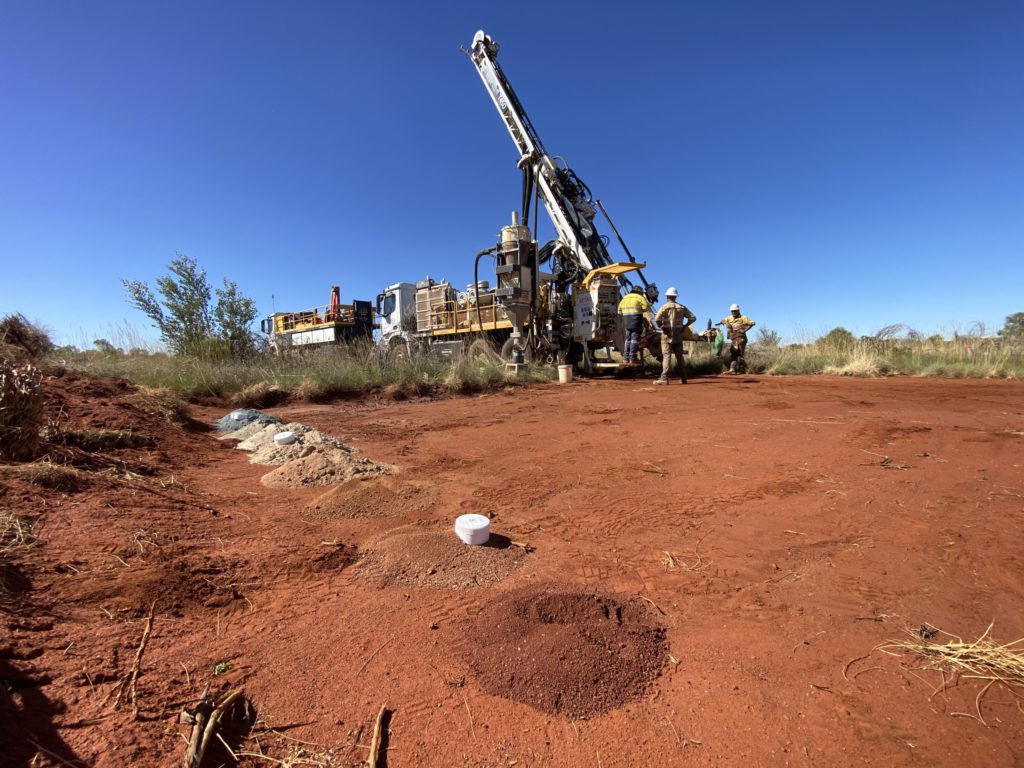JV Article: Novo Resources digs into the Pilbara


Western Australia’s Pilbara region is traditionally known for its massive iron ore deposits. But over the last 10 years, exploration for gold in the region has taken off and Novo Resources (TSX: NVO; ASX: NVO; US-OTC: NSRPF), one of the earliest movers, has accumulated tenements covering more than 9,000 km2, or an area roughly 70% the size of Connecticut.
In mid-September the gold-focused junior founded by economic geologist Quinton Hennigh raised A$7.5 million (US$4.7 million) on the Australian Stock Exchange in an initial public offering (IPO).
The dual listing (Novo listed on the TSXV in 2015 before moving to the TSX in 2021) will give the company a broader shareholder base, increase liquidity and access potential new sources of equity, says Michael Spreadborough, Novo’s executive co-chairman and acting CEO.
“The ASX appetite for gold explorers is very good,” he says in an interview from Novo’s head office in Perth. “We’ve already seen a 3-4¢ arbitrage between the two exchanges.”
With about A$25 million in cash and investments, the company is fully funded for its next stage of exploration in the Egina Gold Camp, about 2,500 km north of Perth. The junior’s leading projects are Becher in the north and Nunyerry North in the south of the Egina Gold Camp.
The Becher project, which sits along an interpreted gold fertile corridor and contains multiple high-priority, orogenic gold targets under shallow cover, is located about 28 km west-southwest of the 10 million oz. Mallina gold project, owned by De Grey Mining (ASX: DEG).
De Grey and Novo completed a joint venture agreement on Becher in June. Under the arrangement, De Grey will spend A$25 million over four years to earn a 50% joint-venture interest. De Grey will manage all exploration under the earn-in and become project manager.
“They are a natural partner with their project next door and it was an important and exciting deal for us,” Spreadborough says. “De Grey’s Mallina project is an enormous project with a definitive feasibility study just released, and the geology and geochemistry at Becher show close similarities to De Grey's mineralization.”
De Grey also completed a cornerstone investment in Novo of A$10 million to become the junior’s largest shareholder with about a 10.3% stake in the company.
“Becher can be a hard one to get the market excited about because it currently presents as a large low-grade system and will take a lot of work, but De Grey can help us de-risk the project,” says Spreadborough, adding that De Grey plans to build a process plant as part of the Mallina project, which will add even more value for Novo shareholders.
In September De Grey kicked off a 39,000-metre program of air core (AC), reverse circulation (RC), and diamond drilling in the Egina joint venture area initially focusing on Becher.
The joint venture agreement followed Novo’s release in March of new gold targets from its end-of-hole AC drill program in 2022 that showed similarities to the gold style at De Grey’s Hemi deposit. Multi-element assays identified prospective hornblende-diorite intrusions at Becher that are commonly associated with gold deposits in the Mallina Basin, Novo says.
Results included 4 metres grading 0.99 g.t gold from 17 metres in drillhole F1393 at the Bonatti prospect; 8 metres of 2.15 g/t gold from 8 metres in drillhole F0632 at the Irvine prospect; 8 metres of 0.2 g/t gold from 16 metres in drillhole F0519 at the Whillans prospect; and 4 metres of 0.4 g/t gold from 12 metres in drillhole F0738 at the Heckmair prospect.
While De Grey takes the reins at Becher, Novo can focus on its own ~2,200-metre RC drill program at the high priority Nunyerry North project, where early exploration has delineated a 1.5-km strike length of high tenor gold anomalism at surface.
A total of 18 soil samples returned grades greater than 1 g/t gold, including 2.3 g/t gold, 21.3 g/t gold, 1.84 g/t gold, and 1.59 g/t gold.
Rock chip results delivered peak high-grade results from quartz veins including 30.3 g/t gold, 21.1 g/t gold, 9 g/t gold, 8.81 g/t gold, and 7.39 g/t gold.
“It’s very rare that you see 1.5 km2 of such strong soil and rock chip gold grades,” says Spreadborough, “and it really shows the prospect is calling out to be drilled.”
Novo owns 70% of Nunyerry with the Creasy Group owning the remainder. The Creasy Group is a privately held resources company led by prospector Mark Creasy.
In the northern Pilbara, Novo owns 100 strike km of tenements at its Balla Balla gold project, which the company says are prospective for intrusion related gold mineralization. The tenements have seen very little exploration and Novo is planning a wide-spaced reconnaissance AC drill program to start later this year or early 2024.
“We’ve got a lot to keep us busy this year,” Spreadborough says, “and we’ve got a good, experienced team to do it.”
The preceding Joint Venture Article is PROMOTED CONTENT sponsored by Novo Resources and produced in co-operation with The Northern Miner. Visit: www.novoresources.com for more information.
Comments